by Daniel Pipes, Efraim Inbar and Martin Sherman
Three analysts respond to the recent article, "How Israel Can Solve Its Gaza Problem" by Brig-Gen. (res.) Yossi Kuperwasser, published in the 2023 Summer Middle East Quarterly.
Disarming Hamas Is an Illusion
by Daniel Pipes
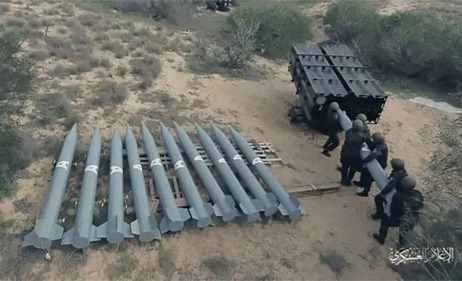
I commend Yossi Kuperwasser for his subtle and knowledgeable analysis. That said, I believe his plan makes Hamas potentially more, not less, dangerous to Israel.
He advocates that Israel end the Hamas threat "by disarming it, prohibiting its rearmament, and demonstrating conclusively that threatening Israel is indisputably against its interests." This will leave Hamas weakened and deterred vis-à-vis Israel, but strong enough to govern Gaza. Should the government of Israel implement the Kuperwasser plan, Hamas can no longer torment Israelis in nearby towns like Sderot with rockets, nor set their agricultural fields on fire with weaponized kites, balloons, and condoms, nor launch rockets to stop a parade in Jerusalem. This has obvious appeal to an Israeli population that is under siege but dreads going back into Gaza after the unilateral withdrawal of 2005.
To which, I reply: Stopping kites, rockets, and missiles is, of course, a gain for Israel. But, a Hamas shorn of airborne projectiles while still in control of Gaza becomes roughly an Islamist equivalent of the Palestinian Authority (PA). That gives Hamas great opportunity. Over its nearly thirty years of existence, the Israeli government has permitted the PA to aggress against the country in two main ways: through violence and delegitimization. No matter how horribly the PA acts in these two arenas, Israel's security establishment protects it, and the prime minister funds it.
Violence: Assuming the PA precedent holds, Hamas may freely incite, fund, and arm a range of low-level attacks on Israelis, including stonings, knife stabbings, lynchings, car rammings, shootings, bombings, arson, and full-scale intifadas. Tunnels and suicide drones should also be fine. In short, "disarming" Hamas is an illusion. Violence will continue and could even worsen.
Delegitimization: Noting what the PA says about its "partner for peace," Hamas should enjoy complete liberty to scream out any calumnies it wishes: that Jews descend from pigs and apes; that Zionism represents an imperialist movement of white supremacists subjugating an indigenous people; that Israel oppresses, exploits, and massacres a Christ-like victim population. Further, they can portray Benjamin Netanyahu as the new Hitler, Gaza as a concentration camp, and Palestinians as experiencing fifty Holocausts.
I could stop here, having made my case for the limited benefit of the Kuperwasser plan; it solves one problem but leaves two others untouched. But its implementation could make Hamas even more dangerous to Israel. My reasoning:
Although Palestinian anti-Zionism has been around for over a century (1920: "Palestine is our land and the Jews are our dogs"), it took off in the 1990s when the Left turned against Israel. The 1993 Oslo accords signed on the White House lawn, no less, created the PA, which convinced the global good and great that it had thereby accepted the Jewish state, making it the darling of world politics. Of course, the PA had done nothing of the sort but now could spread the anti-Zionist message summarized above much more effectively than before.
The 2001 U.N. Durban "World Conference against Racism, Racial Discrimination, Xenophobia and Related Intolerance" symbolized this Palestinian version reaching unprecedented prominence, and it has grown ever since. As the world's favorite revolutionary cause, Palestinians can call on the sympathies and resources of a unique support network that includes dictators, hard-leftists, far-rightists, the United Nations, other international organizations, and legions of Islamists, journalists, activists, educators, artists, priests, and assorted do-gooders.
Anti-Zionism has in recent times reached hitherto unimaginable heights, including the presidency of Chile, the first ministry of Scotland, the leader of the opposition in the United Kingdom, and the U.S. House of Representatives. Current trends suggest that the Élysée Palace, 10 Downing Street, and the White House are within eventual reach. That presents a far greater danger to Israel than kinetic attacks.
In other words, while Palestinian violence does not pose an existential threat to Israel, Palestinian delegitimization does. Here, words are more dangerous than explosives. (The opposite holds for Hezbollah and Iran.)
Until now, and unlike the PA, Hamas remains widely shunned as a terrorist organization, and, in large part, because of those kites, rockets, and missiles. Were Hamas to lose the ability to launch projectiles, its leaders may wish to emulate the PA's trajectory and belatedly sign the Oslo accords (maybe again on the White House lawn?). Doing so automatically ends the terrorist designation and transmogrifies it, too, into an international darling. It would thereby add an Islamist message of delegitimization to the PA's nationalist one, greatly speeding and enhancing the reach of Palestinian anti-Zionism.
Israelis, inured by a lifetime of insults, tend to slough off delegitimization as business-as-usual. Vituperation has become whiney background noise. Palestinians barely figure in Israeli politics. Israeli strategist Efraim Inbar colorfully dismisses them as a "strategic nuisance."
As an outsider to Israel, I believe Israelis underestimate the growing impact of Palestinian venom. Yes, Israel's products—armaments, high-tech, medical supplies, agricultural methods, water technology—have found a global market. Agreed, its military has no regional rival. But these strengths do not release Israelis from the unfinished business of winning Palestinian acceptance. Until then, Palestinian delegitimization threatens Israel no less than Iranian nuclear weapons.
Thus, does the Kuperwasser plan potentially enhance the danger Hamas poses to Israel, trading a more violent but less influential enemy for a less violent but more influential enemy. A projectile-less Hamas that still rules Gaza is a cure worse than the disease.
Daniel Pipes (DanielPipes.org, @DanielPipes) is president of the Middle East Forum.
Sadly, "Mowing the Lawn" Is Best
by Efraim Inbar
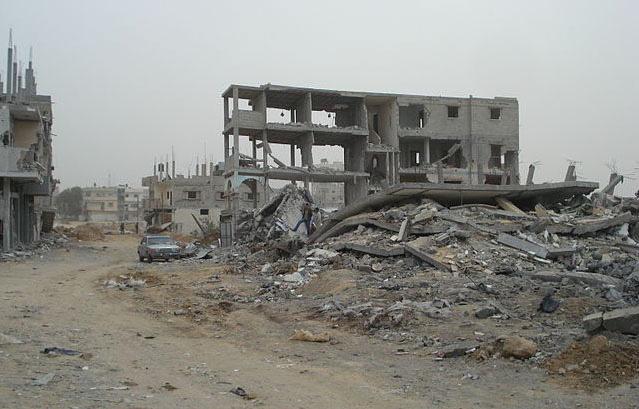
The esteemed Yossi Kuperwasser published a thought-provoking policy paper advocating victory over Hamas by disarming the organization. He suggests the demilitarization of the Hamas-ruled Gaza Strip is a worthy and achievable goal. This piece reflects the widespread frustration in Israel with the approach of successive Israeli governments to the security challenges from Gaza that threaten several strategic sites within the country and the lives of many Israeli civilians. The general feeling is that Israel's deterrence is hardly effective in preventing the periodic launching of a myriad of rockets on Israeli civilians and that the government is not sensitive to the suffering of the population at the country's periphery.
Kuperwasser analyzes the current policy of "mowing the lawn," whereby Jerusalem forcefully reacts to a chain of provocations, heavily damaging Hamas's infrastructure in the hope of creating enough deterrence to delay as much as possible the next conflagration. According to the author, this policy's main shortcoming is that it began a process of Israeli readjustment to an unacceptable situation.
I have no issue with the diagnosis of Kuperwasser. My problem is with his prognosis. The author advocates a multi-dimensional approach: the use of greater military force, backed by economic pressure and international support, to achieve demilitarization—the victory so far denied to Israel.
While Kuperwasser is correct in insisting that dealing with Gaza needs to be discussed within the framework of the strategic level, he discusses the treatment of Gaza's military challenges in isolation from Jerusalem's strategic priorities: Israel is a small state with limited resources and huge strategic challenges.
Jerusalem's priority, by necessity, is Iran—a strong Middle East power with imperial ambitions and an active nuclear program—and its many proxies in Lebanon, Syria, Iraq, Yemen, and, in Gaza, in the form of the Palestinian Islamic Jihad (PIJ). Israel's main resources and attention should be directed to countering Iran's nuclear program and preventing the establishment of a "ring of fire" (bases for missile launching pads) around Israel. The Israelis learned from their experience in Lebanon that missiles do not rust over time but become a dangerous arsenal. That is the rationale of Jerusalem's continuous military campaign in Syria (the "campaign between the wars") to prevent establishing a Hezbollah model in that country. The civil war in Syria provided the international conditions for the campaign.
Unquestionably, Gaza is less of a threat than Lebanon or a potential Hezbollah-type situation in Syria. Jerusalem must first prepare for an attack on Iran's nuclear installations and against Hezbollah in Lebanon. It is a good question: what is the best sequence for Israel's war against Iran?
In contrast, Gaza is not an important or urgent priority. Israel's advanced missile defenses neutralize much of the effectiveness of the Gaza-launched armament. The balance in the ongoing race between Gaza's offensive capabilities and Israel's defensive arsenal could change. Still, Jerusalem has the upper hand so far. Therefore, achieving victory over Hamas must be measured by how much such a war diverts attention and resources from Israel's strategic priorities and the price Israelis must pay for a victory in Gaza.
Moreover, whether a victory over Hamas is in Israel's interest is unclear. Such a victory inevitably strengthens the Palestinian Authority (PA), the rival of Hamas in the Palestinian arena. In the long run, the PA is more dangerous to Israel than Hamas because it enjoys international legitimacy and has greater control over Palestinian-populated territories. Hamas, which the international community recognizes for its desire to destroy Israel, is a more convenient enemy than the PA, which obscures this goal. The existence of Hamas and PIJ makes establishing a hostile Palestinian state less likely.
Kuperwasser's argument is also flawed at the tactical level. Demilitarization, particularly when it is achieved through the use of force, is always temporary. As long as the motivation to destroy Israel and kill Jews exists, rearmament is only a question of time. The deeply-rooted Palestinian anti-Israeli feelings, reinforced by the Palestinian education systems in Gaza and the PA, will, for a long time, feed the desire to fight against the "occupation" and against those that "stole the Palestinian homeland." Therefore, Kuperwasser proposes a temporary victory that, at best, extends the timeframe from one round of violence to the next. Then Jerusalem will have to mow the lawn again. Expecting a decisive victory to end or cause a lengthy pause to the protracted ethnoreligious conflict of more than 160 years is unrealistic.
Demilitarization requires the conquest of Gaza and the Israel Defense Forces (IDF) staying there for at least several months to collect all weaponry and destroy the infrastructure for producing missiles and other military equipment. Kuperwasser proposes a ground operation, which the IDF can certainly execute. However, a high-profile IDF presence will likely generate a guerrilla campaign. The larger the military formations employed, the higher the level of casualties to be expected. It is unclear whether the Israeli public will stomach a long military involvement in Gaza. Finally, the hope that Hamas will give up its weapons under military pressure and not rearm at the first opportunity is unrealistic. Resistance is its DNA and rationale. It cannot survive as an organization without a military wing. The military dimension of the suggested new approach is not very promising.
Even less promising is the component of economic pressure to attain demilitarization in exchange for substantial financial assistance. Effective economic pressure creates hunger and suffering. Jerusalem will hardly withstand pictures of Palestinian misery. According to Israel's policy, it counts the number of calories entering Gaza to ensure no starvation exists there. It is Hamas that capitalizes on pictures of hungry and dead Gazans. Hamas uses them as human shields by placing its rocket launchers and military installations in schools, hospitals, and mosques. Well-intentioned humanitarian organizations will petition for international intervention to prevent a humanitarian catastrophe. The international community, whatever that is, will demand an end to economic sanctions that affect uninvolved civilians. Demilitarization in exchange for the reconstruction of Gaza is a good slogan but not a realistic approach.
Similarly, the expectation that Jerusalem could build a regional coalition to convince Hamas to disarm is very doubtful. An Erdoğan-led Türkiye will always have a soft spot for the Islamist Hamas. A Gaza-based Hamas on the border of Egypt, a rival for regional influence, suits Ankara well. Qatar supports radical Islamists in many places of the world, including Gaza. How can Jerusalem precipitate a change of policy toward conditional support?
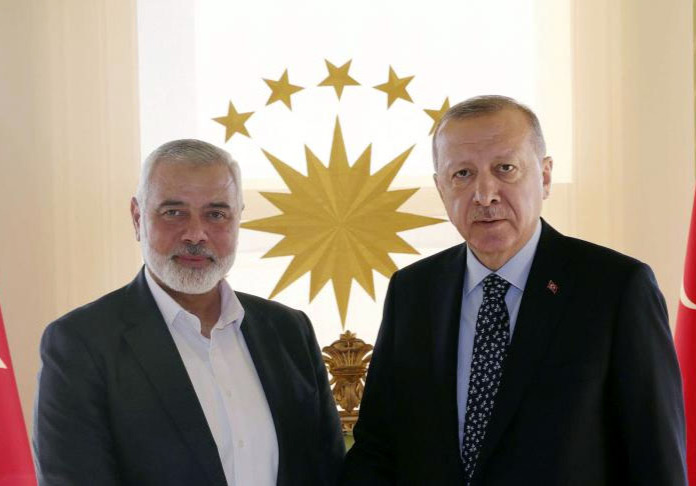
Finally, despite its close security cooperation with Israel, Cairo is unlikely to favor demilitarization. The Egyptians are not interested in a too-strong Israel. Keeping Hamas as a thorn in Israel's side is an appealing scenario.
The proposition to encourage Gazans to revolt against the Hamas regime is also problematic. Rebelling against a ruthless, authoritarian regime ready to shoot at the opposition and demonstrators is difficult. Moreover, an alternative power cannot be expected to be less hostile toward Israel. As noted, paving the way for PA control in Gaza only strengthens an enemy. Jerusalem should be aware that political engineering in the Middle East is complicated and may generate unintended consequences.
Despite the criticism voiced here, Kuperwasser is spot on in demanding a public discussion of the preferred approach to Gaza. Israelis are not fully aware of the security dilemmas involved and do not understand the advantages of mowing the lawn. This patient approach takes into consideration Jerusalem's strategic priorities and limitations.
He also suggests, rightfully, that Jerusalem should exact a higher price on Hamas for its enmity and violence. The IDF can bring about greater destruction on Hamas installations. Targeted killing of the leadership should also be used when Hamas misbehaves. However, Hamas has probably internalized that the price for hurting Israel is its ability to rule. Its first preference is organizational survival and the chance to govern a piece of Palestinian land.
Hamas decided not to join the fray in the recent, violent exchanges between Israel and the PIJ. In contrast to many Israelis, Hamas has patience and believes that, in the long struggle against the Zionists, it can wait to use violence to destroy the Jewish state later.
Efraim Inbar is president of the Jerusalem Institute for Strategy and Security (JISS).
Refusing to Bite the Bullet
by Martin Sherman
Ever since the ill-considered and ill-fated unilateral abandonment of the Gaza Strip by Israel in August 2005—euphemistically dubbed the "disengagement"—Jerusalem has found itself embroiled in a seemingly interminable circle of violence, which the disengagement was supposed to prevent.
But, haplessly moored to the failed notion of eventual Palestinian-Arab self-governance in Gaza, the Israeli establishment has found itself hopelessly mired in a morass of strategic futility. Indeed, shortly after the egregious evacuation of Gaza, the luckless enclave fell to the control of the Islamist terror group Hamas. Whenever Hamas feels strong enough to attack Israel, it launches missile and mortar bombardments at Israeli civilian centers—with ever-improving and ever-increasing range.
The standard, almost knee-jerk, response from Jerusalem, whenever it feels compelled to respond to Palestinian-Arab aggression, is to inflict large-scale damage in Gaza, mostly, but not exclusively, from the air, until it deems that "deterrence was restored."
This, of course, is a major misuse of the term deterrence, which should refer to an action designed to break the will of an adversary to engage in future aggression—as in the case of Germany and Japan in World War II. To the contrary, after brief interbellum respites, Hamas and its other more radical Islamist cronies emerge spoiling for a fight with its political standing and military capacities typically undiminished—indeed, even enhanced. For Hamas, the devastation inflicted is little more than the "cost of doing business."
So, despite the depressingly predictable cycle of fighting, the Israeli defense establishment, even with its impressive tactical and technical ingenuity, persists with its strategic sclerosis, never daring to break the mold and raise the possibility of alternative strategic approaches.
Not an Actionable Prescription
In his article, Kuperwasser claims, correctly, that
Israel has in recent years been living with a dangerous phenomenon, to which it has wrongly become accustomed, without any real debate as to its advisability.
According to Kuperwasser:
Jerusalem has defined its goals vis-à-vis Gaza as achieving the longest possible intervals of relative calm between major eruptions of violence; in other words, it does not challenge Hamas's ability to attack Israel.
He deftly points out the detriments of this approach:
The flaws in such an approach are clear: it grants Hamas the ability to develop its offensive capabilities, increase its political power, and condemn Israelis—especially those living within range of the Gaza Strip—to persistent threats from Hamas terrorists.
He then proceeds to enumerate the practical measures that comprise his proposed alternative. And Kuperwasser's formula does include some incisive insights—such as the detrimental role of the U.N. Relief and Work Agency for Palestine Refugees in the Near East (UNRWA). However, the potential for hawkish civil society advocacy groups to induce positive impact on policy, the need to overcome hypersensitivity to IDF casualties, and the strategic nature of the threat that a Hamas-ruled Gaza poses for Israel—is far-too-little, far-too-late.
Thus, while Kuperwasser's paper comprises a commendable diagnosis of the Gaza-related malaise, in practical terms, it is more a "nice-to-have" wish-list than an actionable remedy.
There are two major flaws that undercut the value and the validity of Kuperwasser's policy paper. The one is that it is essentially an overall list of purportedly desirable objectives without much detail on how they should be obtained; the second—and graver defect—is that its underlying rationale is still tethered to the idea of eventual Palestinian-Arab self-rule over Gaza.
The central pillar around which Kuperwasser builds his policy alternative is the disarmament of Hamas—but not necessarily its removal from power. Indeed, there is significant ambivalence as to whether Kuperwasser is proposing merely weakening Hamas or deposing it. Clearly, these are two very different outcomes, especially given the uncertainty as to who its prospective successor might be. In some places, it is possible to interpret him as proposing to unseat Hamas as a precondition for the disarmament of Gaza, and elsewhere, as imposing disarmament on Hamas as a means of defanging it.
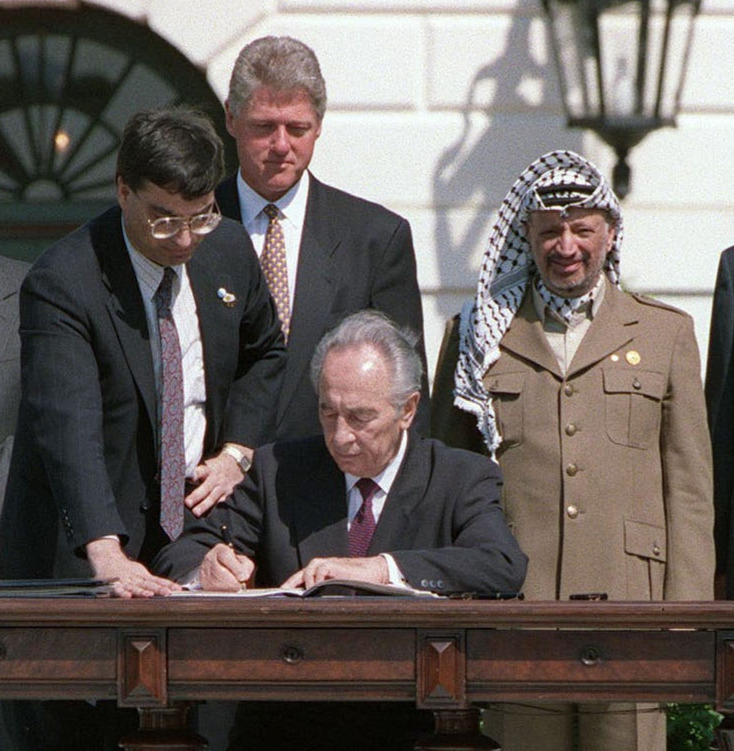
The disarming of Hamas (or the demilitarization of the Gaza Strip) is hardly a novel idea. Indeed, it was one of the cornerstones of the 1993 Oslo accords—and was flouted by the Palestinian Arabs right from the get-go, over a decade before Hamas seized control of Gaza.
But quite apart from the manifest difficulty in attaining this goal are the no less acute difficulties that would arise if, in fact, it were achieved. After all, if, as Kuperwasser urges, Jerusalem were "to take harsh steps to force Hamas to disarm and to deny it the capacity to rearm itself," this would inevitably undermine Hamas's ability to impose law and order in Gaza, not only on heavily armed criminal elements but on more radical elements such as the Palestinian Islamic Jihad and other Salafist groups—which Kuperwasser himself mentions.
But beyond the day-to-day challenges to law and order, how would a defanged Hamas contend with attempts to overthrow it by more radical opponents both from within the Gaza Strip and from within the adjacent Sinai Peninsula? If a demilitarized Hamas—or any disarmed successor regime—were faced with a significant challenge to its rule, whether from domestic or foreign sources, would the Israelis be called upon to defend it? Indeed, it is difficult to conceive of a more Kafkaesque prospect than one in which IDF forces need to be mobilized to prop up a virulently Judeophobic Islamist regime against even more virulently Judeophobic Islamist adversaries.
According to Kuperwasser, another essential element in facilitating his proposed alternative policy is enhanced intelligence. He reiterates that although Jerusalem already had "quite good" intelligence coverage of Gaza, it must upgrade it "so that it achieves continuous intelligence dominance."
Of course, the May 2023 Operation Shield and Arrow, which opened with a simultaneous precision assassination of three senior PIJ members by the Israelis, seems to underline that Jerusalem has already achieved a remarkably high level of intelligence penetration of Gaza. This leaves one to ponder over just what levels of intelligence Kuperwasser has in mind for the implementation of his alternative approach, and if these were possible to attain, what is preventing Israeli intelligence from attaining them today. After all, it seems unlikely that Jerusalem is purposefully restraining its intelligence collection capacities merely because Kuperwasser's proffered alternative has not been adopted—nor is it likely that its adoption will somehow improve those capacities.
Of course, enhanced intelligence is always a desirable objective, and it is something that should be routinely aspired to, but it is not at all clear why this is in any way a distinguishing requisite for Kuperwasser's preemptive alternative—or how it should be achieved.
Although he does not discount the use of ground operations, Kuperwasser appears to view this as a last resort, writing that "if there is no other option, Jerusalem might launch a ground operation against Hamas." Instead, Kuperwasser's principal means of choice for subduing Hamas and imposing its disarmament and displacement is stand-off weapons from land, sea, and air. He writes:
Unseating Hamas would not necessarily require a ground operation. Much of the work can be accomplished via stand-off capabilities.
Indeed, Kuperwasser is very wary as to the prospect of a ground operation. He certainly does not appear to envision it as a prelude to a long-term Israeli presence in Gaza, and certainly not the permanent retaking of the strip. On this, he stipulates that such an "operation could focus on the less populated areas and on the Philadelphi corridor between Egypt and Gaza" while conceding that "some of it may occur in densely populated neighborhoods."
This aversion to the prospect of taking over the strip is reflected in Kuperwasser's approach to the incitement that originates in the Gaza classrooms—particularly in UNRWA schools. He urges that Israel
must insist that UNRWA removes from its textbooks any indoctrination and incitement of hate. It should also disengage from and condemn all employees, especially teachers, who are Hamas members or have openly supported attacks against Israel.
Thus, rather than insist that UNRWA schools be abolished, he recommends that they should be restaffed and regulated. But without a permanent presence in Gaza, how can the Israelis ensure that this is implemented, much less sustained over time?
Kuperwasser is rightfully critical of the dominant credo of "mowing the lawn," wherein
each round of escalation [Israel] heavily damages Hamas's infrastructure but fails to prevent it from rearming rapidly with more sophisticated and capable weaponry.
He calls for a
proactive and decisive strategy [to] be formulated and implemented that will eventually force Hamas to accept a new set of rules that will rid Israel of the threat represented by Hamas-controlled Gaza.
The Wrong Historical Analogies
At first blush, this is an eminently plausible view, but it is important not to be misled by inappropriate historical analogies—such as the oft-cited cases of Germany and Japan, whose devastating World War II defeats transformed them from war-like nations into peaceable members of the international community.
In both these cases, the vanquished powers were not surrounded by, or adjacent to, countries with large populations of ethnic kin and co-religionists, who could sustain resistance and incite post-defeat unrest within their borders. Germany was not surrounded by a swathe of Teutonic nations, nor Japan by a swathe of Nipponic nations, which could provide a constant stream of insurgents and armaments to undermine any arrangement or undercut any resolution the victorious powers wished to implement.
This, however, would definitely be the case in the Israeli-Palestinian situation as was the case in Iraq and Afghanistan, where neighboring Islamic states constituted a virtually unending source of instability and incitement after an initial seemingly "decisive victory."
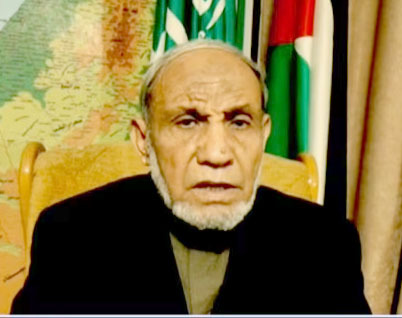
Accordingly, while it is true that the Gaza predicament is unlikely to be resolved without the use of massive military might by Jerusalem, Kuperwasser's formula is dogged by two major defects. The first is that it is still tethered to the idea of eventual Palestinian-Arab self-governance in Gaza. The second is that it seems to suggest that, by sufficient beating, a leopard can be induced "to change its spots."
In this regard, it would be instructive to recall how Hamas rebuffed a suggestion from then-defense minister Avigdor Liberman to demilitarize Gaza in exchange for transforming Gaza into "Singapore"—including the construction of a seaport, an airport, and the creation of an industrial zone that would produce forty thousand jobs. The proposal was scornfully dismissed by Mahmoud al-Zahar, a senior Hamas official, who jeered:
If we wanted to turn Gaza into Singapore, we would have done it ourselves. We do not need favors from anyone.
Explaining why the benign Israeli offer was so brusquely dismissed, Palestinian scholar Bassam Tawil commented:
The dispute is not about improving the living conditions of Palestinians as far as Hamas is concerned. Instead, it is about the very existence of Israel.
Accordingly, the only way for Jerusalem to determine how Gaza is ruled—and by whom—is to rule it itself. The only way for the Israelis to rule Gaza without the blight of having to rule over "another people" is to remove that "other people" from the territory over which it is obligated to rule. The only "non-kinetic" way to remove large-scale portions of the "other people" from that territory is by financially incentivized emigration.
So, as unpalatable as it might be, Jerusalem will disregard this logic at its grave peril.
Martin Sherman spent seven years in operational capacities in the Israeli defense establishment. He is the founder of the Israel Institute for Strategic Studies (IISS), a member of the Habithonistim-Israel Defense & Security Forum (IDSF) research team, and a participant in the Israel Victory Project.
Daniel Pipes, Efraim Inbar and Martin Sherman
Source: https://www.meforum.org/64756/is-disarming-hamas-israel-best-policy
No comments:
Post a Comment